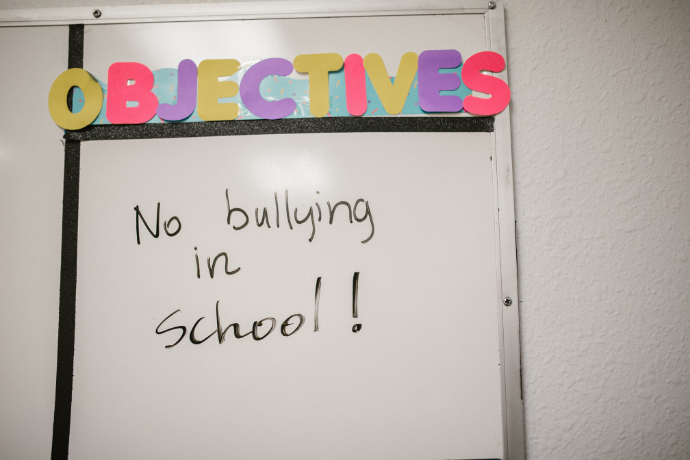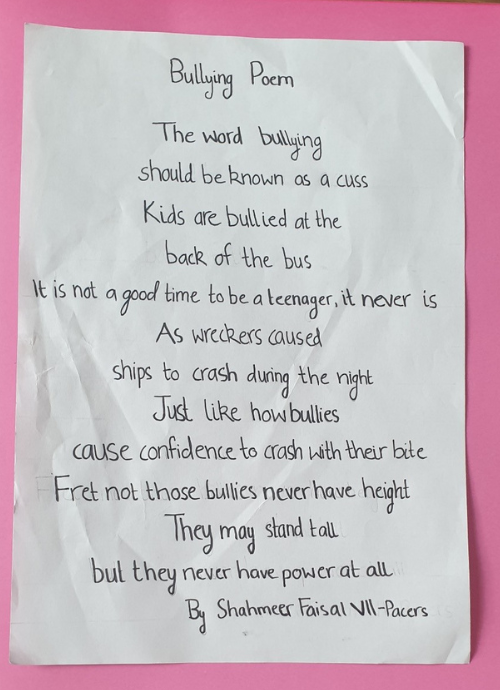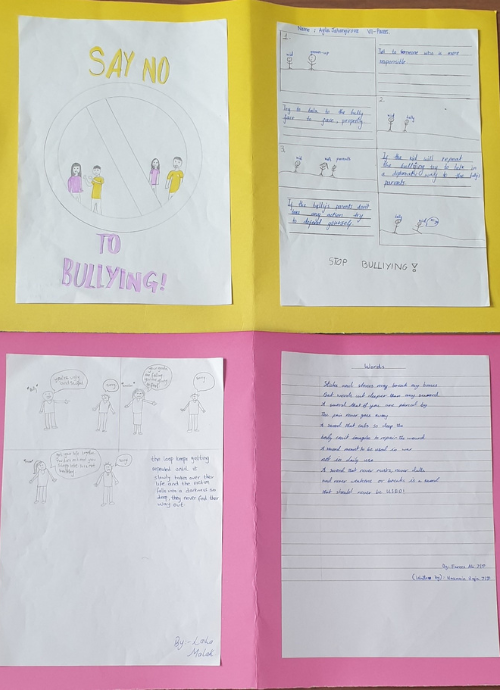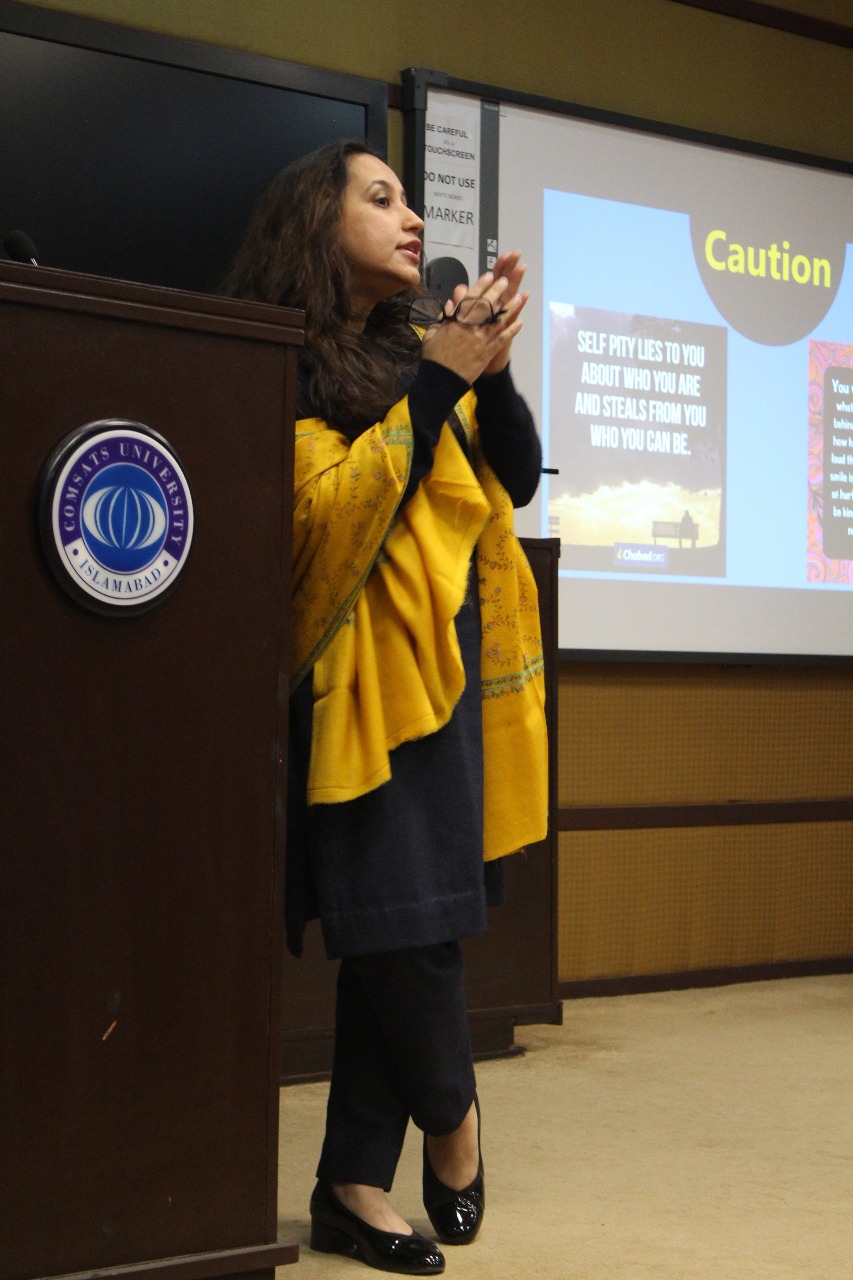
Anti-Bullying Campaign at Schools Part-II
This is the 2nd and last part of the bullying its impact series.
Talking about bullying with my students was a wonderful experience. I realized how important it is to talk about issues like these in schools. Students had varying opinions and experiences.
Some students faced bullying, some witnessed bullying while those who bully, thought there is nothing wrong with bullying others. Teasing one another is part of growing up, however, it can affect some people profoundly.
Every child is unique and views things differently. For one kid bullying may mean nothing while for another it could shatter his personality.
Anti-Bullying Campaign at PSI
Bullying should be monitored and reported. It should not be left unattended. At PSI, the school took great initiative to discuss it, create awareness and let students know when it should be reported. Students participated in role playing and expressed their views via anti-bullying posters, poems and buddy posters.
A poem from a grade 7 student was simply beautiful!

Some interesting illustrations and another lovely poem by the students of grade 7:

As a parent, talk to your child about bullying. Make it a point to ask your child about his day. On a weekly basis, discuss how he is doing, ask him about his friends and if he is facing any problems. Children tend to exaggerate at times. We need to assure them that we are there for them so that the child feels secure and is not threatened by minor things like harmless jokes from friends. But if your child is losing interest in school, complaining about headaches/stomach aches frequently and seems unhappy most of the time, then there is some problem.
Do not let your child become a bully and if he/she is being bullied, teach him the strategies to handle the situation. We talked about bullying in our previous blog.
Here are a few other things to discuss with your child about bullying:
- It can be verbal (mean and hurtful words and threats),
- Physical (hitting, pushing, punching etc.),
- Social (excluding people from your group of friends and/or from other groups) and
- Cyber (online bullying).
Cyber Bullying
Cyber bullying is the most common and unnoticed but can cause a lot of harm. Some tips for children to remain safe online:
- No sharing of personal information like addresses, parents’ jobs, phone numbers etc.
- If someone is bothering you, let them know your parents/an adult is with you in the room.
- Instant messaging is like inviting people into your home. You should know who you are inviting. These should not be strangers.
- Remember whatever you share online is no more private and it is PERMANENT! So be very careful before sharing anything online.
- Report cyberbullying and do not keep it to yourself.
The internet is a great blessing but using it correctly and with care is the way to remain safe!

Educationist, researcher, writer and a passionate learner from Islamabad. She has been working as a freelance writer for more than 10 years now. From academic to content writing. Finally, she is doing what she loves; writing for education. You can reach her at editors@educations.pk

